Let States Select Immigrants – Dr. Ann Chih Lin
|
When: Friday, May 9, 2025 (12:30-1:30PM)
Where: 360 Parrington Hall and on Zoom (register here)
1-on-1 meetings: 223 Raitt Hall on Thursday, May 8 (sign up here)
We are looking forward to hosting Ann Chih Lin from The University of Michigan on Friday, May 9 in Parrington Hall 360 and on Zoom. This seminar is co-sponsored by the Population Health Initiative, the Evans School of Public Policy & Governance, and the Center for Global Studies at the Jackson School of International Studies.
In the forty years since the Immigration Reform and Control Act of 1986 (IRCA), no significant reform to the structure of immigration law has made it through the U.S. Congress. Yet during those forty years, how immigrants enter the United States, where they come from, where they settle, who employs them, and how they adapt to American life have all changed dramatically. During the same time, a shadow state of immigration regulation has developed, based not on statutory law but on precedents, executive action, federal agency guidance, and state and local policy entrepreneurship. None of these provides a stable legal structure for immigrants, their families, their employers, or their neighborhoods and communities. Instead, in Let States Select Immigrants, the case is made that rather than ceding regulation to the federal government or individual employers that states should govern immigration selection, basing their decisions on economic development strategies, interest in population growth, and family and community resources.
(read more) |
 |
|
|
CSDE Research Scientist June Yang Supports Population Health Initiative Tier III Project – Develops Open Source Software for Data Collection on People Experiencing Homelessness in King County
|
CSDE Research Scientist June Yang, PhD, along with Ihsan Kahveci, PhD candidate in Sociology and CSDE trainee, and CSDE Affiliate Zack W. Almquist, PhD, Associate Professor of Sociology and Statistics (PI), have been leading a project to develop open-source software facilitating the data collection about the unhoused population in King County, WA.
This project aims to develop scientific software to support the implementation of a network-based data collection and estimation method (building on Respondent-Driven Sampling) for enumerating unsheltered people in King County. The software is centered around a web-based app, providing a one-stop solution for recording network information and survey responses from respondents. The software also features a HIPAA-compliant design to facilitate additional data linkages with existing systems such as Homeless Management Information System (HMIS). The project is funded through a UW Population Health Initiative Tier III grant.
Dr. Yang has been providing direct support for project development, which includes, but is not limited to, usability research, scoping, team recruitment, software design, and development. As part of a broader project team working on data collection and analysis of homelessness experiences, Dr. Yang has been supporting the data processing and analytical work on the survey data collected in 2023 and is expected to support the next step in grant applications arising from this effort.
To arrange a consultation appointment with June Yang or any of CSDE’s scientific support staff, please use the CSDE Science Core Consultation Request form.
(read more) |
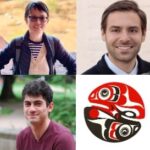 |
Martinez and Guttmannova Co-Author Study on Age-Varying Patterns of Young Adult Cannabis Use and Cannabis Specific Risk Factors
|
CSDE Affiliates Griselda Martinez (lead author) and Katarina Guttmannova (senior author) both in Psychiatry and Behavioral Sciences and colleagues analyzed patterns of cannabis use, related risk factors such as norms about and perceived harm from use, and their associations over the course of young adulthood in a legalized nonmedical cannabis context using 2015-2022 data from young adults in Washington State. The results, published in this Prevention Science article, suggest preventive intervention efforts should include sustained focus on cannabis-specific risk factors across young adulthood. Read the full article here.
(read more) |
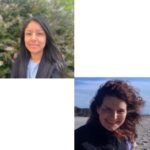 |
Korinek Quoted in Article about Vietnam Health and Aging Study
|
Most studies of the aftermath of war have examined the perspectives of refugees, veterans in the U.S., or survivors in Europe. In a recent news article published by Science, CSDE External Affiliate Kim Korinek (University of Utah) describes how her team’s Vietnam Health and Aging Study has created a new source of data to measure early life trauma exposure and health in later life among people in Vietnam. CSDE Biodemography Lab Director and Research Scientist Tiffany Pan and CSDE Affiliate Melanie Martin supported the biomarker data collection for this project. In the article, Korinek explains that these data will help more comprehensively document the lasting consequences of violence and conflict. Read the full article here.
(read more) |
 |
Nepf Selected as Applied Research Fellow
|
CSDE Trainee Mark Nepf (Evans School) received the Applied Research Fellowship from UW’s Population Health Initiative for Summer 2025. This program, implemented in partnership with CSDE, offers students training in data analysis, critical thinking and team science skills that will help them solve complex population health challenges on their way to becoming future leaders in population health. Learn more about this fellowship here.
(read more) |
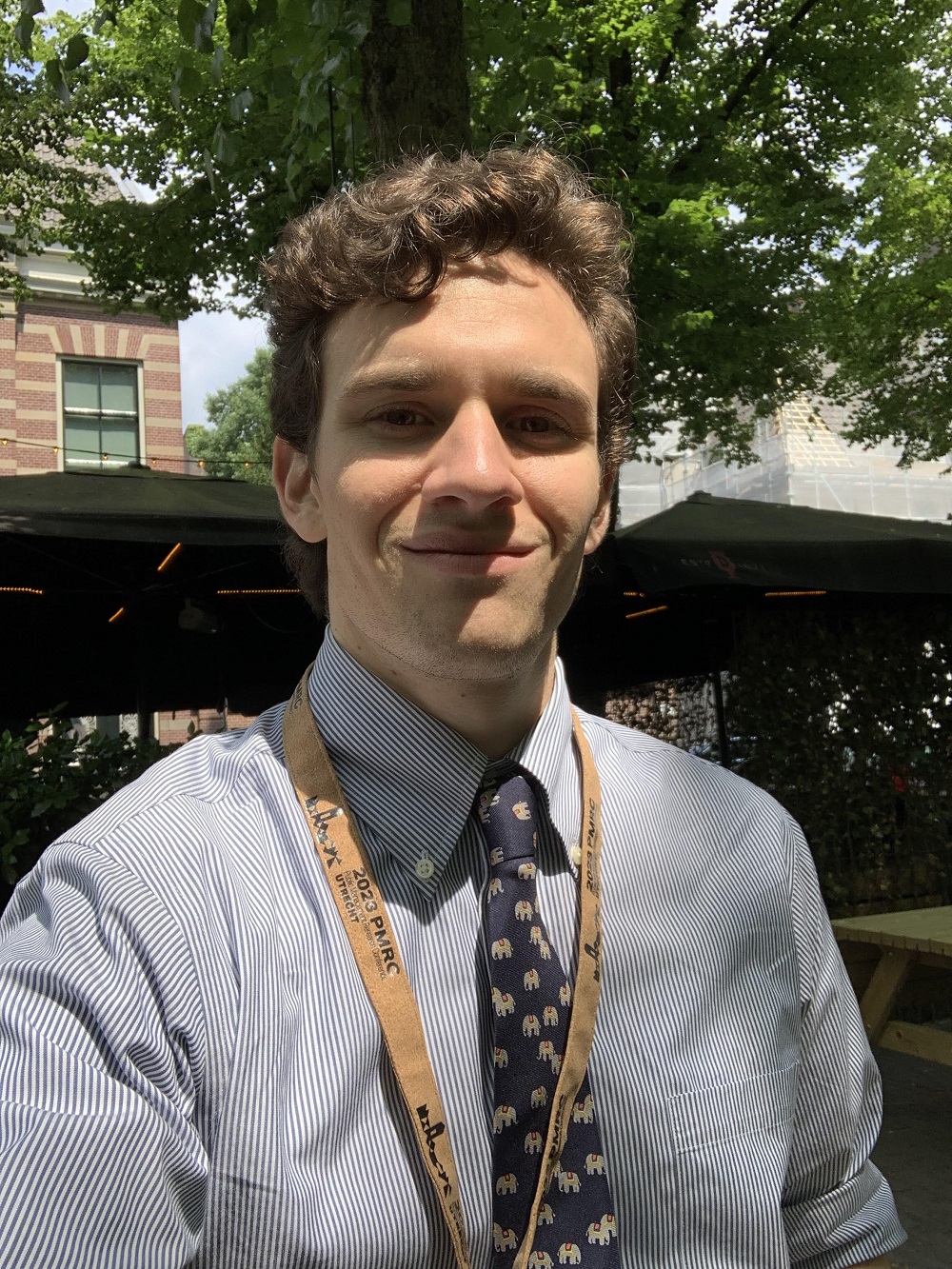 |
Casey’s and Wilner’s Research on Climate-Driven Disasters and Deaths Newly Approved in NWFSRDC
|
The National Center for Health Statistics has approved a groundbreaking research project at the Northwest Federal Statistical Research Data Center (NWFSRDC), titled “Climate-Driven Disasters and Deaths.” This project, led by CSDE Affiliate Joan Casey (Environmental and Occupational Health Sciences), aims to explore the profound impacts of climate change-exacerbated natural disasters on vulnerable populations. The research team includes experts from various institutions: CSDE Trainee Lauren Blair Wilner and Elizabeth Blake from the University of Washington School of Public Health, Matthew Kiang from Stanford University School of Medicine, and Kara Rudolph and Marianthi-Anna Kioumourtzoglou from Columbia University Mailman School of Public Health.
Please visit the FSRDC website to learn more about the wide-ranging data available through the NWFSRDC, the process to access these data, and how to contact the center.
(read more) |
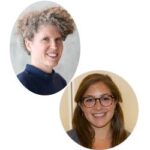 |
|
|
*New* NIH Notice on DEI Programming
|
On April 21, NIH issued a notice that modifies current terms and conditions for all NIH grants, agreements and awards. This notice requires grant recipients to certify that they do not operate DEI programming that violates federal anti-discrimination law. The UW has robust compliance practices to ensure compliance with federal and state anti-discrimination laws, as for other award compliance requirements that we certify. This includes education, auditing, and mechanisms for reporting and investigating potential violations. Further, to the extent the new language is an attempt to implement the Executive Order on DEI, that Order remains the subject of a Preliminary Injunction. OSP is aware that agencies are adding new conditions and is reviewing terms for institutional certification. PIs should carefully read all of the terms in grants, agreements and awards to ensure that the work of their particular project is compliant. If you have questions, please reach out to the Office of Sponsored Programs (osp@uw.edu). A complete list of federal administration updates is maintained by the UW Office of Research here. Up to date UW guidance around all federal grants can be found here.
(read more)
|
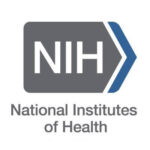 |
*New* CSDE Workshop: Biospecimen Collection for Population Research (5/8/25)
|
Join us on May 8th from 2:00 – 3:30pm for a workshop that will provide an introduction to biospecimen data collection with CSDE Biodemography Lab Director Tiffany Pan. We will cover ethical considerations, a broad range of specimen types, equipment and supplies needed for transport and storage, analyte stability, and other practical factors for designing a study that involves specimen collection and storage for downstream biomarker analyses. No prior experience with biomarker research is necessary.
(read more) |
 |
Data Access With Federal Administration’s Transition
|
The challenges of data access during federal administrative transitions can happen every four years. What follows are some resources that might be useful. We will continue to update this blog post with new information. If you have any links that could be helpful, please send csde@uw.edu your updated and helpful information. We know that what follows may not provide you with the exact data you need, so let us know what you need and what’s missing and we can try to find where it is located.
(read more) |
 |
Data Update: IPUMS NHGIS Now Includes 1970 Block Boundaries
|
IPUMS NHGIS now includes 1970 census block boundaries! This is the first-ever release of digital data for these areas, extending our collection of block boundaries to span six censuses across five decades. This release covers all or part of 21 metro areas, including the cores of 7 of the 8 largest metros in 1970 — New York, Chicago, Philadelphia, Detroit, San Francisco-Oakland, Washington, Boston — as well as Dallas-Fort Worth, Minneapolis-St. Paul, Milwaukee, and Sacramento. To learn more and to access the data, see the 1970 Block Boundaries page.
(read more) |
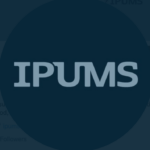 |
Data Update: IPUMS CPS Adds February and March Basic Monthly Data
|
IPUMS CPS has added the February and March basic monthly data. Additionally, we have extended previously available supplement variables to cover additional years for the Volunteer and Civic Engagement Supplement, Food Security Supplement, and Tobacco Use Supplement. IPUMS CPS harmonizes microdata from the monthly U.S. labor force survey, the Current Population Survey (CPS), covering the period 1962 to the present. Data include demographic information, rich employment data, program participation and supplemental data on topics such as fertility, tobacco use, volunteer activities, voter registration, computer and internet use, food security, and more.
(read more) |
 |
Keeping Up With UW-Relevant Federal Policy Updates and Federal Administration Research Policy
Opportunities to Publish Research Policy Briefs with the Association of Population Centers
|
CSDE is a member of the Association of Population Centers, and through them can offer you or your colleagues the opportunity to have new or forthcoming research that you want to share with policymakers, journalists, educators, or other non-academic audiences. The Population Reference Bureau (PRB), in collaboration with APC, is working to improve the dissemination of population and reproductive health findings. If you have peer-reviewed research on population dynamics, population health, or reproductive health that you would like to share with a broader audience in an easily digestible format, APC and PRB may be able to help. To learn how, visit their website and take a look at recent research policy briefs.
(read more) |
 |
Preprint Opportunities through Association of Population Centers
|
CSDE is a member of the Association of Population Centers and through them can offer you and your colleagues access to their preprint publishing platform. Research Scientists, Postdoctoral affiliates and faculty are invited to submit to the APCA Working Paper Series which gathers and disseminates original population science research papers. These working papers are authored or coauthored by scholars who are faculty or postdoctoral affiliates of the Association of Population Centers (APC) population centers.
(read more) |
 |
Apply for William T. Grant Scholars Program (5/7/25)
|
The William T. Grant Scholars Program supports career development for promising early-career researchers. The program funds five-year research and mentoring plans that significantly expand researchers’ expertise in new disciplines, methods, and content areas.
Applicants should have a track record of conducting high-quality research and an interest in pursuing a significant shift in their trajectories as researchers. We recognize that early-career researchers are rarely given incentives or support to take measured risks in their work, so this award includes a mentoring component, as well as a supportive academic community.
(read more) |
 |
CSDE NIH Grant Writing Summer Program (5/9/25)
|
The CSDE Development Core is once again hosting its annual Grant Writing Summer Program (GWSP) to assist scholars in preparing applications to the National Institutes of Health (NIH). Applications are now open for this program! More info is available here, and the application page here. Make sure to read all the FAQ’s – there’s lots of good info in there! Past participants report great success, and lots of support and even fun along the way.
(read more) |
 |
*New* Workshop on Understanding and Communicating the Societal Impacts of Research (5/9 and 5/23/25)
|
The Office of Research invites you to join a group of UW researchers in a peer learning workshop on documenting and communicating the societal impacts of research. We seek interested researchers from any of the three campuses, any department or school, and any position responsible for leading research. Due to substantial interest in this event, this workshop will be held twice. Learn more and apply here.
(read more) |
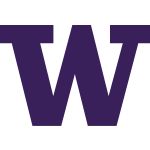 |
*New* UW Libraries Workshop on Community-Engaged Scholarship (5/14/25)
|
More Than Citations: Leveraging Author Profiles & Altmetrics for Greater Engagement
Wednesday, May 14: 1:00-2:00pm on zoom
Understanding your research impact goes beyond traditional citations. In this workshop, we’ll explore how author profiles help showcase your publications and how altmetrics provide real-time insights into the broader reach of your work. Learn how to track online engagement, connect your research to global conversations, and enhance your visibility using tools like ORCID, Dimensions author profiles, and the Altmetric Bookmarklet. Whether you're looking to strengthen your online presence or demonstrate impact for funding and career opportunities, this session will provide practical strategies to make your research stand out. Sign up here.
(read more) |
 |
*New* College of Built Environments Climate Solutions Symposium (5/14/25)
|
The College of Built Environments invites you to the second annual Community of Practice: Climate Solutions Symposium — an evening of conversation, connection, and celebration of the work CBE faculty and students are doing to advance climate solutions.
Enjoy a light reception and explore posters showcasing climate-related research, teaching and learning from across the college. RSVP to attend the event.
(read more) |
 |
Attend the Office of the Provost’s Research Resilience Series on Disappearing Data (5/19/25)
|
The Office of the Provost’s Research Resilience series will host a panel discussion, “Disappearing Data Panel & Discussion: Recoveries, Repositories, and Resiliencies,” on Monday, May 19th from 9:30am to 11am that will be facilitated by CSDE Director Sara Curran. This panel presentation will provide an overview of the challenges surrounding the loss of data, including data that is removed from publicly available sites, national surveys that are canceled, and standard survey measures or data changed for non-scientific reasons.
(read more) |
 |
Apply for Harry Bridges Center WA State Labor Research Grants (5/22/25)
|
Each year, the Harry Bridges Center for Labor Studies seeks proposals for policy-oriented research directly relevant to policymakers in Washington State. All University of Washington faculty, full-time lecturers, and UW graduate students sponsored by a faculty member are eligible to apply.
Up to $15,000 is available for each grant. Depending on available funding, awards may include a tuition waiver for graduate employees. Please note this waiver does not extend to students in fee-based programs.
(read more) |
 |
York University Centre for Refugee Studies 2025 Summer Course – Climate Migration Futures: Shaping the Research Agenda for 2050 (Application Deadline 5/25/2025)
|
For over two decades, York University’s Centre for Refugee Studies has run an internationally acclaimed, non-credit professional development Summer Course that brings together practitioners, policy makers, and researchers to learn together about the most pressing forced migration and refugee issues.
All participants who complete the full course receive a York University Centre for Refugee Studies Summer Course Certificate. Learn more here.
(read more) |
 |
ICPSR Summer Workshop on Applied Methods for Studying Structural Racism, Sexism, and Other Systems of Oppression (5/26/25)
|
The Health and Medical Care Archive, funded by the Robert Wood Johnson Foundation, is sponsoring a workshop during the annual ICPSR Summer Program in Ann Arbor, Michigan. Be sure to apply for this workshop in advance––enrollment is capped at 25 participants. Apply by 5/26/25.
(read more) |
 |
*New* Robert Wood Johnson Foundation Rapid Response Opportunity (5/28/25)
|
The Robert Wood Johnson Foundation released a request for rapid response grants focused on racial and indigenous health equity. Applicants whose health equity research projects* have lost federal funding are eligible to apply. Documentation demonstrating impact is required (e.g., a termination letter). The grants are available through the RWJF Evidence for Action (E4A) initiative. Learn more and apply here, or attend a weekly E4A office hour here.
(read more) |
 |
IMPRS-PHDS: Call for applications (5/30/25)
|
CSDE collaborates with the Max Planck Institute for Demographic Research (MPIDR) in a doctoral training program called the International Max Planck Research School for Population, Health and Data Science (IMPRS-PHDS). This program is based in Rostock, Germany, but includes 12 doctoral programs in the U.S. and Europe. CSDE has one IMPRS-PHDS fellowship application slot available to current CSDE Trainees. The fellowship funding will support a one quarter research stay at the MPIDR any time between July 1, 2025 and June 30, 2026.
(read more) |
 |
*New* Apply for the 2025 Graduate Climate Conference (6/8/25)
|
Applications for the 19th Annual 2025 Graduate Climate Conference (GCC) hosted by MIT and the Woods Hole Oceanographic Institution on November 7-9, 2025, at Woods Hole, MA are now open! The deadline to apply is June 8th, 2025.
The GCC is a student-led, interdisciplinary conference (co-hosted by UW and MIT) that offers graduate students a unique opportunity to share their climate-focused research and connect with peers from a wide range of disciplines. Conference attendance is fully funded, with additional limited support available to help cover travel expenses. Apply here.
(read more) |
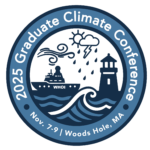 |
*New* Northwest Climate Adaptation Science Center Faculty Fellowship Program (7/15/25)
|
The Northwest Climate Adaptation Science Center is now accepting applications for its 2026 Faculty Fellowship Program, which supports research related to climate adaptation in Northwest natural and cultural resource management as well as training in the principles and practices of co-producing decision-relevant science. This is a “last-mile” program that funds activities aimed at enhancing the usability of existing research for natural resource managers.
(read more)
|
 |
Lynde and Harry Bradley Foundation Grants (Rolling)
|
The Bradley Foundation is a private grantmaking foundation that honors the principles and example of its namesakes, Lynde and Harry Bradley, by pursuing a mission to restore, strengthen, and protect the principles and institutions of American exceptionalism. The foundation has a rolling proposal process around grants for its Constitutional Order and Informed Citizens initiatives. Projects should have budgets between $25,000 and $200,000.
(read more) |
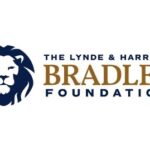 |
Sign up to join the Early Career listserv!
|
We invite early career faculty affiliates to join our new mailing list, csde_earlycareer. Among other things, this is the way to find out info about our quarterly Early Career Affiliate happy hours, and you won't want to miss those! These will be a great way to meet up with other junior scholars in a fun and casual atmosphere over snacks and drinks. Who counts as early career, you ask? Typically we mean folks who are pre-promotion (i.e. assistant professor or equivalent), but we're not strict! Join the list here (Please note - this is for faculty only - we are strict about that. Sorry, all others!)
(read more) |
 |
|
|



